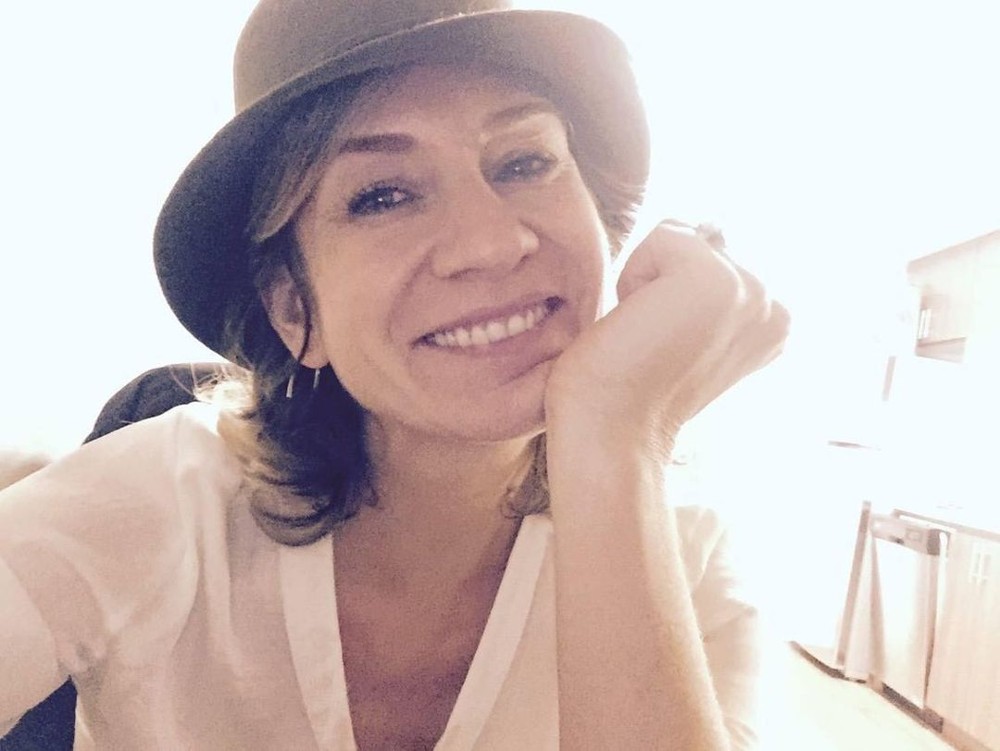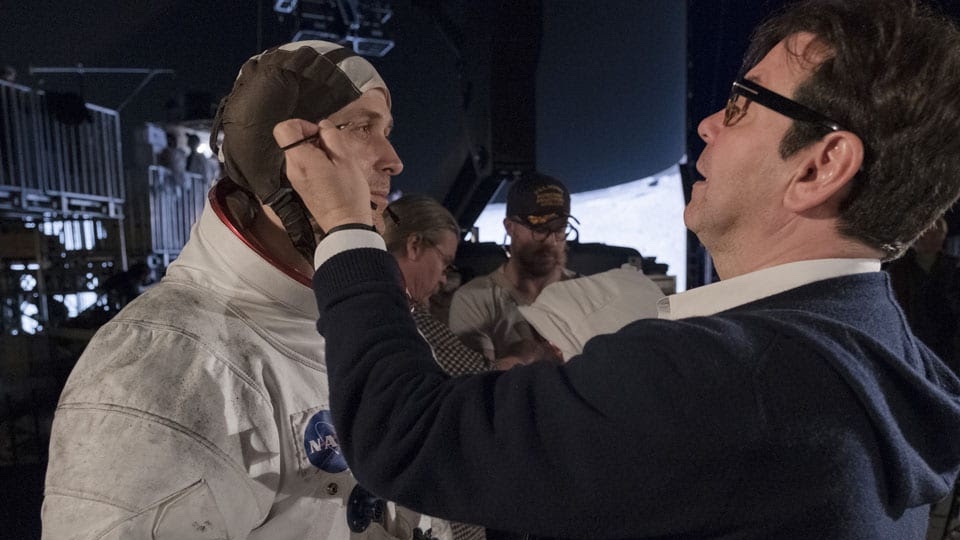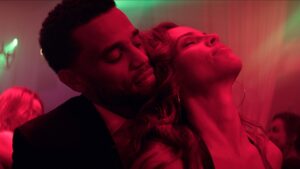
As with many L.A. composers, Geoff Zanelli came out of the Hans Zimmer school of scoring, working with the busy Oscar-winning composer on some of his projects before branching out on his own. His work with Zimmer on the first four Pirates of the Caribbean movies for Walt Disney Pictures led Zanelli to taking over the scoring reins for the fifth movie, Pirates of the Caribbean: Dead Men Tell No Tales, but that was after nearly 13 years composing scores for films like Secret Window, Disturbia, Hitman and others.
Actually, the first of those was with filmmaker David Koepp, who Zanelli would work with two more times, and a few years back, Zanelli would be teamed with a filmmaker who would keep the composer pretty busy over the next few years. Deon Taylor has directed, co-produced and in some cases, written, four thrillers that were completed before COVID. Taylor also was one of the first filmmakers to be making movies once the pandemic hit in March.
We’ll let Zanelli tell the story of how the two first met, but their first movie together, Traffik, was followed by three more thrillers, including the recently-released Fatale, a modern twist on the old school femme fatale thriller that was so common in the ‘80s and ‘90s, this one starring Michael Ealy, Hilary Swank and Mike Colter (Luke Cage).
Below the Line got on Zoom to talk with the L.A.-based composer about working with Taylor on these projects, but we also asked a few general questions about collaborating with filmmakers and deciding when to take on a new project.
Below the Line: You’ve worked with Deon Taylor quite a bit going back to his film Traffik, but also all his movies since then as one of the busiest guys in showbiz.
Geoff Zanelli: If you count the one I’m finishing with him now, it’s actually six. Fatale is the fourth one we did together in the chronology, so he has one that he’s finished and one that we’re finishing now. Of course, with COVID, all the release plans get juggled around a little.
BTL: I was impressed that he was one of the first filmmakers to be shooting again amid COVID. He figured out a way to keep working, which amazes me. But let’s start with your general background. I know you worked with Hans Zimmer for a while and a couple other composers. What was your background as a musician before composing?
Zanelli: I grew up in Orange County in a city called Westminster, but it might as well be another country, compared to Hollywood. I didn’t know any professional musicians or filmmakers or anything, but I did want to do music. I went off to college to Berkeley in Boston, and then while I was there, I started soliciting composers in LA, because I knew it’d be back out in the summers to try to get an internship. Hans was actually the guy who gave me an internship. He was doing The Lion King at the time, and I was just happy somebody led me into a pro studio. That was 1994, and I still have a studio at Hans’ place, so I guess from that angle, I’m a 26-year friend and colleague of Hans’. At some point, my career started to be more of my own projects, probably around 2004-2005 era. On the way up, I was John Powell’s assistant for three or four years, and then I became Hans’s arranger, so I worked on Hannibal with him and that was the first one. We probably did 15 or 20 movies together, but the ones people remember are the Pirates [of the Caribbean] films, the first four, where he was the composer of record mainly, and then for the fifth one, was able to take that over. That is the super-condensed version of my career, but I didn’t come into film music like from a rock band or something like that like some people do, or they have an artistic career. I left my band world behind in high school and we were never any good, let’s put it that way. [laughs]
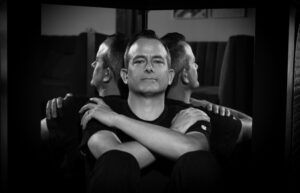
BTL: Did you have a main instrument?
Zanelli: Oh, yeah, I’m a guitar player. All my writing’s on the keyboard, but I do still occasionally play guitars. My running joke is that I’m better at owning guitars than I am at playing them. Now, I hire professionals. I do still play. For certain particular things, I’m actually really good, but I’m by no means a session guitarist. I know who the good ones are, and they’re in a whole other league.
BTL: I went back and looked at your filmography and noticed you scored the thriller Disturbia, which I loved, and you’ve also worked with David Koepp, who has made some amazing thrillers as well.
Zanelli: It’s funny, because Disturbia is actually the score that Deon liked of mine. When he was doing Traffik, our mutual friend was the editor, Melissa Kent, she was cutting it, and she said, “You should come over and meet this guy. He loves your music for Disturbia…” It was sort of instant. Within a minute I think we knew we were gonna do this movie together. Disturbia was actually the one that he liked, and David’s movie Secret Window, which I can’t remember if it was before or after Disturbia, but right around the same time. Whichever one was first surely helped me get the second one, but Secret Window was one of my earliest solo credits and that kind of ushered me into the industry.
BTL: What were some of your first conversations with Deon like?
Zanelli: Let’s see. I went over, and they were still editing, so they didn’t have a full assembly of the movie yet, but he did show me probably three or four scenes, and he talked to me about what he liked about Disturbia. There’s really a lot of differences. Traffik is actually a more mature movie I think. It’s a much bigger concept. We’re talking about human trafficking. Obviously, we’re still a thriller. I started writing the music and sending it to him. I guess the way we’ve typically worked. He might talk about ideas or sounds that he likes or an approach that he’s thinking about, but largely, he leaves me to my own devices to do a first pass of things, and then he weighs in. That’s actually one of the things I like — his way of filmmaking is to bring in people he wants to work with — I mean his DP is Dante [Spinotti], who’s just incredible, when he has teams like that, he can let them do their work and kind of meet him halfway. [He’s] not really bossy. It’s much more like a collaborative thing, and we’re making a movie together, and we really are both trying to make it as good as we can. He definitely talked about sonic things – he likes dark sounds, he likes sustained sounds typically, as opposed to percussive things. I mean, we still use them, but generally speaking, it’s not as I guess I’d say jittery of a score as you might expect from other thrillers, until you get into real kinetic action.
I think his focus is usually on the… the way I talk about it with him is like the potential energy versus the kinetic, and it’s much more exciting and tense to build as much of that potential energy before you open the floodgates, I guess is a good way to put it, which I think is not necessarily trend right these days, because most movies are going full on from the first frame to the end. Deon and I actually like in these movies to be more of a slow build. It applies to Fatale as well.
BTL: Does he usually have a first cut or some kind of edit or are you working on some music even before that?
Zanelli: After Traffik, and once we sort of built our relationship, the next movie was The Intruder, and from then on, he sent me the script. I usually start writing or at least getting ideas together before he’s even shot it. In the case of The Intruder, I had the script, I started writing just little ideas, and I could send them to him. Even as he’s gearing or as he’s shooting, he’ll listen to them and call me that night and say, “Here’s what I like,” and get some feedback from him. Deon is so prolific that you can’t really sit down for an eight-hour meeting with him, because he’s already shooting another movie. We’re forever like, “Let me send this to you, wherever you are, and give me a call when you get a chance to look at it.” Right towards the end, when we’re really locking it in and getting ready to dub the movie, then I get a lot more, focused time. He does not like sitting still. In fact, really, when the quarantine happened, I thought, “What’s Deon gonna do?” Out of all the people, he can’t be not doing anything. I actually didn’t even know he’d managed to get a movie. We were working on a different one, and I thought we were gonna have to wait on that, and then he kind of calls me out of the blue and goes, “So I just shot this movie.” In the case of the one I’m doing now, that’s called Don’t Fear. He did shoot it during COVID through a million little miracles. I didn’t even know he was making it — that’s how quickly he was able to kind of get it together. That one, I did have the script, but like a couple days before he had an assembly of the movie is when I read the script. Typically, I think the way he and I like to work if I can read the script, I do, so I can get things done early. If not, I just get started as soon as editors are going, and I can look at footage.
BTL: Do you generally write on a computer and then always redo it with real instruments later?
Zanelli: Funny you say that. It depends on the project. With Deon’s movies, in contrast to Maleficent, for instance, which is like a big orchestral score. That is all synthesized at first. We fine tune everything, and then we sit a giant orchestra down and record it. Kind of a traditional, or modern traditional way of writing a score. With Deon’s movies, so much of the character of the scores I write for him is actually in the performances. The real secret is it’s usually me playing all the instruments. Obviously not when it goes out to a bigger orchestra thing for certain moments in the movie. If I turn this camera a little bit over that way, you’ll see there’s a cello over there. I can’t actually play the cello, but I can use it.
BTL: Is it a MIDI cello?
Zanelli: No, it’s a real cello. I can put a microphone on it, and I just attack it and sort of abuse it, and it becomes part of the sound of the movie. I can play a couple notes. I can’t play a melody, but I can design sonic elements for the score. I think it actually gives them a unique sound, because instead of just loading up a synthesizer, which basically everybody has one, I can create a sound with my own hands. And then from there, I actually can kind of use it like a synthesizer. I can use it as an element. I can program it into the computer and manipulate pitches and lengths and all that, but I know that the source of the sound is not something off the shelf that the guy two doors down also has, but it’s actually me playing the instrument in my own unique way. I think that’s what starts to give his movies an identity. Usually, it’s a different instrument or different instrumentation for different movies. So for Intruder, I built this cage of percussion instruments that were all made out of home-building supplies, because it’s a home invasion thriller. I thought, “Wouldn’t it be cool if the instruments were from a house?” With Fatale, the cello is providing a lot of the kind of the dark basis. I did hire professional string players to play all the real melodic… the notes, I guess I can say, but the sound design elements of the score were me. I was always enamored with it. I grew up in the 80s, when these sort of femme fatale thrillers were in vogue, so there were a lot of them, so I watched them. Very often I would hear a piano, so I thought, “I want to take that instrument” — which, frankly, I don’t actually write for that much — but I want to turn it on its head. I have a piano that I, again, abused in certain ways, processed to make it sound maybe less like… it’s not just a plain piano. It’s a piano through my little warped audio engineering, abuse techniques for lack of a better term to create a sound for the movie. I do think that’s a sound that I hear, and I was also hearing glassy sounds, so there’s some wine glasses, and these kind of effects to represent different aspects of the story. That where I started to build the palette for Fatale.

BTL: That’s a very high concept idea for The Intruder. I’m going to have to go back and watch it with that in mind.
Zanelli: I’m not sure necessarily how much it reads, but it’s in the spirit of the score. For a lot of The Intruder, there was a string group as well. There’s something really exciting about this kind of… it’s almost like a rebellious way of making a movie. Dean operates largely outside of the Hollywood studios. He makes his movies, and then he finds distributors. That’s not how most of the directors I work with work. I kind of buy into that spirit. It’s an exciting thing to be a part of. If I’m writing a piece, and I go, “Oh, I wish there was a vocal.” Well, I just sing it. If I’m writing a piece, and — I’m thinking of The Intruder right now –but I want the music to feel sort of like masculine and grunting and just sort of really not nice. And then I thought, “Well, I have a microphone…” So I can just like create these things myself. I hand-make them, I guess, and I think there’s a certain appeal to that in the same way that, a lot of the pop music that I listen to is made by bedroom wizards. It’s not made in the big studios. It’s made by some kid in his bedroom and there’s still some element of me that’s that kid in his bedroom, I think. When I can tap into it, I like to.
BTL: I remember in the ‘80s and ‘90s, bands were spending tens of thousands of dollars to go into the studio and spend the day writing songs where now bands can do things on a computer or even a digital 8-track before that which can be released as is.
Zanelli: It’s totally true. Just the advent of the home studio has made a huge, huge, huge change in the industry. I’m raising a kid right now who can do things on our iPad that I couldn’t do until I was in my mid 20s when I had a little bit of money to buy equipment. It’s astonishing that the entry point for creating music of your own is now obviously lower than it’s ever been, but it’s so rapidly getting lower, too. I think it’s a good thing. I mean, basically anyone who says, “I want to make music today,” could do that right now.
BTL: I still remember those four-track cassette decks that were huge at the time, though it sounded like sh*t.
Zanelli: Even when you’d see people doing sound effects or something for a movie, and they’d have to carry a backpack worth of equipment, and now you could do it off your phone. The same applies to filmmaking, too. My daughter makes some stop motion movies on her iPad, and they look amazing. What did Gumby cost to make? It was a totally different thing.
BTL: I want to ask about working with Deon on Fatale, because I know he uses a lot of hip-hop and R&B music, so are you working with the music supervisor to make sure it works with your score and vice versa?
Zanelli: Yes and no. Sometimes, the songs are kind of locked in early like in Fatale, there’s a Keith Sweat song – “Make It Last Forever” it’s called — that’s used in an important scene. That one was locked in. We knew from the beginning. If you remember the scene when Derek goes in, and he finds his best friend in the middle of an affair with his wife. There’s a song that’s basically their song playing, which makes it sort of darker, because she would play the same song with another man. As the scene goes, it slowly warps and gets sort of distorted and strange and all that. That was actually something that I did. I took the song, and I started manipulating it, inspired really by the chopped and screw remixes that you’d hear that’s popular in Houston. It was just a sound where basically it almost sounds like the song is melting. Everything slows down to the wrong speed. It’s very trippy, kind of, and then once I have that and I start layering in the score, that’s one way to take the hip hop, or that’s an R&B song, but manipulate it in a way that it becomes score. I’m not even quite sure how to describe it. It’s like in this hybrid world between score and source.
As for the other songs, if it’s coming off a radio or he uses it to set the scene or for geography sometimes, those ones they may change over the process of the movie, because he might find another song he likes better. It does happen independent for me. The music supervisor will do it, and then they’ll let me know if there’s a new one. In particular to score obviously, if it overlaps, I have to tailor my score to work with the song. In a way, those kind of exist outside of my bubble, but I think he uses them to great effect. In Black and Blue is another one where there’s a lot of really good usage of songs for placement.
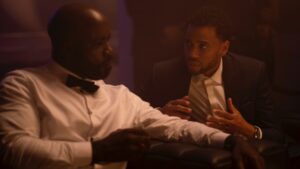
BTL: Do you have to worry about keys matching up? And do you sometimes have to change the keys of your score to fit with a song?
Zanelli: Yes, that stuff, it’s pretty easy, and sometimes, things might change, as the process goes on, it might happen right near the end where all of a sudden, “Oh, I heard this thing. Let’s see if we can get it.” A song might shift right near the end, but yeah, I’m used to it. A couple of decades of dancing my feet, those are the least of my worries.
BTL: I’m curious what makes you decide on working on a project with a new director. Obviously, Deon keeps you busy and David Koepp comes to you when he makes a movie, but what do you look for on a project, since it’s generally going to be something that might take months.
Zanelli: Yes, that’s right. They’re all commitments. In a way, even though I’ve done a lot of work with Deon, he’s still one of the newer directors I’ve worked with. He’s just made those six movies in the span of like three years. David Koepp goes back 15 years – he and I have known each other for a long time. In the case of Deon, it was a mutual friend, like I said, was working on the movie, but other times, I might get a call from someone who’s heard a score that I wrote for something and liked it and sought me out. In that case, I always think there’s no harm in talking to people, so of course, I’ll come over, I’ll have a meeting, or I’ll talk to them. I guess it’s whether I feel like we’re gonna make something great together. The good news is almost everyone who’s getting to make a movie, in a way, they’ve been in the industry for a while. They’re like pre-screen — nobody’s really making a movie that doesn’t know how to make a movie, I guess, is what I’m saying. I can sit down with them, and we start talking about the bigger concepts. What is it that they’re trying to do with the film? Obviously, I bring my own ideas. Usually, it’s a matter of our personalities clicking, I think, more than almost anything. At this point, everybody knows I can write music, and I know that every director I sit down with can make a movie.
BTL: How do you feel about the temp score thing when you come onto a project and your past score was used to temp it?
Zanelli: I’m of two minds about temp scores. I sort of like that, although the real trouble is if you can’t still bring something original to the movie. The idea is when a temp score is used right, it points maybe vaguely in a direction of instrumentation, feel, tempo, that kind of thing. Occasionally, you do have people that fall so in love with one particular piece of music, that it becomes difficult to bump it. You’ve probably had that conversation with 100 composers by now. It’s a sort of a normal thought process of a double-edged sword. Generally, I like it when I hear my own music in a temp score, because I know what I was thinking when I wrote it, so I can sort of get to a place that helps me as a good starting point.
What I try to do with what I’m writing is be so specific, and right for the movie that I’m doing that, that you couldn’t use it for another movie. I don’t think you can take my score for The Pacific and put it in another World War II show — I don’t think it’ll work. And Pirates music says Pirates, so as soon as you play it, you’re saying Pirates. That stuff, funny enough, it’s rarely the big, huge scores that I’ve done that get temp’d. You wouldn’t really put Star Wars music into your temp score, because it’s so iconic, and it is exactly what it is. Generally speaking, I get a little concerned about whether or not a temp score can be specific enough, so when you take something out of one of my old movies, put it into a new one, it might not necessarily work. It might point me in a direction, and that is helpful.
BTL: Do a lot of the directors you work with know enough about music to communicate with you? I know some directors have some sort of music background and some who know nothing about music.
Zanelli: Yeah, it’s different. It’s really such a wide span. I think David Koepp, because his career is also as a writer, he listens to film music while he writes, so he’s very knowledgeable of scores. Sometimes, he’ll even call me up and go, “Hey, I’m writing such and such. What scores should I listen to?” He solicits advice from his friends about that. I think that’s cool. Going back to Gore Verbinski, he’s extremely knowledgeable about music. In fact, he’s also a musician, so that’s one extreme, I’d say. Deon, on the other hand, I’m not sure. He loves movies, so he might say… I know he loved Joker – everybody loved Joker. He’d call me up and say, “Oh, have you heard that score? It’s so great.” That doesn’t mean he wants me to use it as an influence. He just gets excited, because he likes the movie. In Deon’s case, he doesn’t really force or push in any particular direction. In some other directors’ case, they might come in with an idea already of what they’re hoping to do, and then your job is to show them the thing they hadn’t thought about. That’s the way we try to work.
Fatale will be available on VOD starting Friday, January 8. You can hear more of Zanelli’s work at his Official Website.




